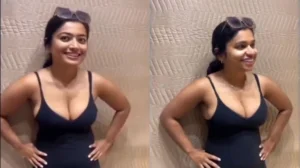YouTube is introducing new rules for AI content. Creators will now have to disclose whether they have used generative AI to create realistic videos. The goal is not to prevent creators from using generative AI tools but to hold them accountable for the type of content they choose to share with the public.
YouTube is a platform where not only professionals but also common people can show their creativity and make long videos. It has become a job for many people nowadays. As with all digital social media platforms, YouTube is now increasingly using AI-generated content. There are tons of tools that make it possible for anyone to create AI content in minutes. The content is at times so realistic that even experts take a moment to recognize that it is not real.

Various cyber crimes have increased with AI. Recently a deepfake video of Indian actress Rashmika Mandanna has gone viral across social media platforms. After a video showing the actress entering an elevator wearing a form-fitting black dress with a revealing neckline went viral on the internet, public fears about AI have been raised. Because investigation revealed that the girl in the video is not Mandanna. Instead, Reshmika’s face has been placed on another girl’s face with the help of deepfake.

So this time YouTube has made a big decision regarding the use of this AI generated content. YouTube creators will soon have to comply with new policies regarding content creation with Artificial intelligence.
The platform said in a blog post on Tuesday that it will take disciplinary action against content creators who fail to disclose that they use Al Tools to create morphed videos. The action will vary from taking down the video to suspending the revenue sharing process.
New Guidelines
YouTube’s new guidelines will apply specifically to creators posting realistic AI-generated content.
YouTube will use AI to quickly identify content that violates its policies.
YouTube creators must label videos with AI-generated content.
YouTube will also make it possible for creators, viewers and artists to request the removal of AI-generated content.
Meta, the owner of Facebook and Instagram, will require advertisers to disclose the use of AI in ads about elections, politics and social issues.

Content creators should reveal wheather they have used generative AI
YouTube’s new official blog post has recently revealed that the company has begun developing new guidelines to monitor AI-generated content shared in videos. Creators will soon be required to disclose the AI-generated, morphed and synthetic content. This is because someone who is not familiar with such tools becomes a victim and believes what they are shown. In fact, a synthetically created video showing realistic violence that is difficult even for experts to detect can be removed by YouTube even if its aim is to shock or disturb viewers. Creators who repeatedly fail to publish AI-generated content may face penalties such as content removal or suspension.
Use of Labels
Labels revealing of artificial content shall be mandatory on the description panel. YouTube has provided mockups showing what these descriptions might look like
Sensitive topics such as elections, disasters, government officials, and conflicts may require an additional prominent label directly in the video player.
Content moderation
YouTube’s new generative AI will help augment training data, which will help YouTube catch new threat types faster and reduce exposure to harmful content for viewers.
One way YouTube can implement this policy is to train its existing content moderation systems to flag videos that feature AI-generated media.
Remove request of AI- generated Contents
YouTube’s future AI detection tools will allow users to request the removal of altered or synthetic content imitating an identifiable person with their face or voice. This will be done through the privacy request process. YouTube will allow requests to remove AI-generated content containing the face or voice of an identifiable person without permission. These include deepfaking unique vocal patterns or appearances using AI generation. Music partners will soon be able to request AI music takedowns by simulating an artist’s singing or rapping voice.
 Jenny Flannery O’Connor and Emily Moxley, vice presidents of product management, wrote, “Generative AI has the potential to unlock creativity on YouTube but just as important, these opportunities must be balanced with our responsibility to protect your community,”
Jenny Flannery O’Connor and Emily Moxley, vice presidents of product management, wrote, “Generative AI has the potential to unlock creativity on YouTube but just as important, these opportunities must be balanced with our responsibility to protect your community,”










